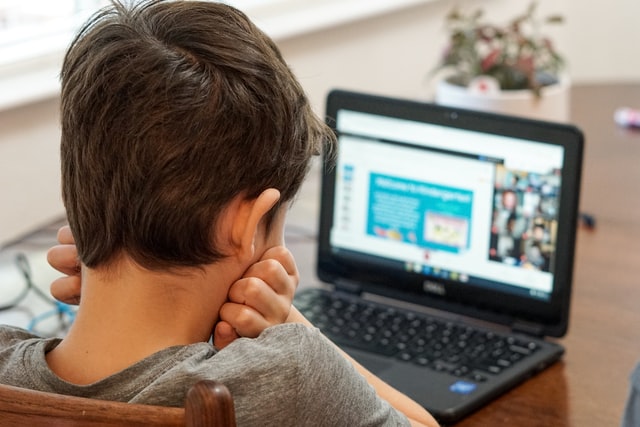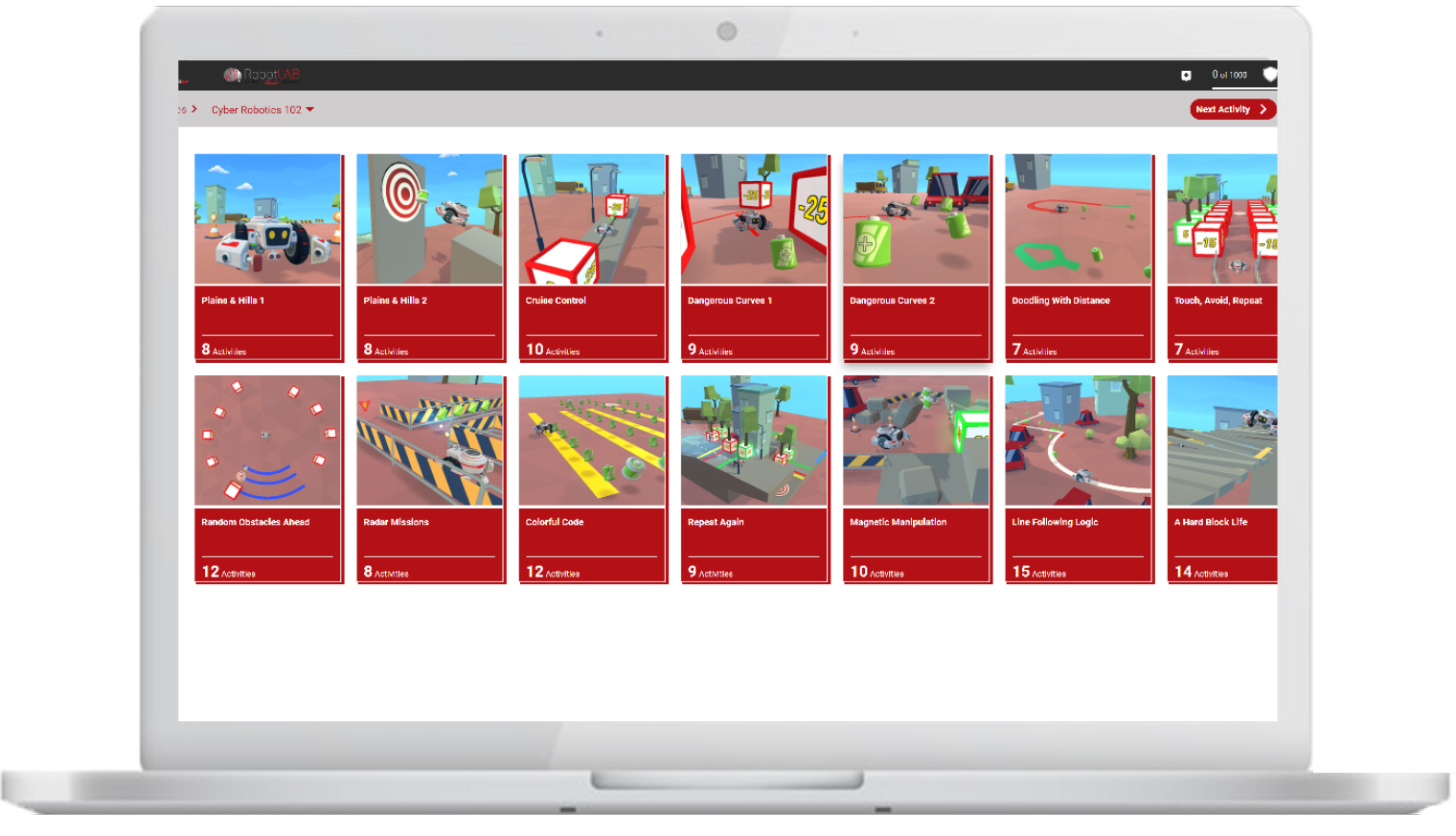By Jane Gallagher
 Photo by Thomas Park on Unsplash
Photo by Thomas Park on Unsplash
Online learning has increasingly become a viable option for schools and districts to provide their students with improved access to a greater number of the courses they need. Teachers are becoming more adept at incorporating online resources into their daily instruction, and the oldest K-12 online programs are now more than twenty years old. Hundreds of thousands of students are using online instruction either full-time, or to supplement their local school’s offerings. Today, students have many choices to utilize the power of online education to make learning personal and meaningful to them.
What exactly is online learning? Defining online learning can be difficult because many online education terms do not have standard definitions and there are many different types of programs, both full-time and supplemental. Some programs are completely online while others combine online and face-to-face instruction. Courses also differ as to whether there is student-teacher and student-student interaction, and they also differ by type of instruction and method of delivery.
According to Keeping Pace with K-12 Digital Learning, in academic year 2014-2015 (the most recent data) more than 462,000 students took courses from statewide online schools. State virtual schools operated in 26 states, providing supplemental online courses to their students. These state virtual schools served over 815,000 semester course enrollments. About 60 percent of public school students live in states without a statewide virtual school. These estimated 2.2 million students took approximately 3.8 million courses from many different online course suppliers. Most online courses (73.9 percent) were taken in core subject areas (Language Arts, Math, Science and Social Studies), with the remaining 26.1 percent taken in Electives, Health/PE, World Languages, and Arts.
The most common types of online offerings at the pre-college level are:
-
State Virtual Schools which are typically state-funded agencies.
-
Multi-district online schools which are typically charter schools operated by for-profit companies.
-
Single-district schools which are full-time and/or supplemental schools that use district funds to reach schools within their geographical area.
-
Consortia and other organizations that are an association of two or more schools, districts, or regional service agencies that pool resources to expand online learning options for students, such as The Virtual High School (VHS).
This article focuses on the first high school supplemental online course program in the United States – The Virtual High School (VHS). VHS was founded by a Technology Innovation Challenge Grant in 1996. The goal was to determine if online learning was a viable option to provide all students with equal access to quality educational options regardless of geographic location. It is clear based on the longevity of VHS and the prevalence of so many pre-college online and blended learning options across the United States and around the world, that online learning is here to stay.
The Virtual High School (VHS Inc.) is a Massachusetts-based nonprofit organization that is bringing the power of immersive space simulations to STEM learning for middle and high school students. In partnership with the Center for the Advancement of Science in Space (CASIS), a nonprofit organization that manages the International Space Station U.S. National Laboratory, VHS has developed an online program called Space Station Academy. Through Space Station Academy, students can go on a Mission to the ISS, or learn about Science from Space. The goal of the program, developed in cooperation with the Association of Space Explorers and the Technical Education Research Center (TERC), is to get students excited about science, technology, engineering and math at an early age – and foster interest in further study.
“Our courses use real-world scenarios and teach practical skills to keep students captivated in the subject matter,” said Carol Ribeiro, President & CEO of The Virtual High School. “That relevance also means that students are exploring potential college majors and career paths. Space Station Academy, for example, enables students to engage directly with astronauts and scientists who have worked on board the International Space Station (ISS) and learn how science research on the ISS benefits life on Earth. Students investigate our planet with cutting-edge observation technology. Students learn about STEM subjects with an emphasis on Earth, physical science and engineering, and life sciences. The experience is designed to inspire students to consider careers as astronauts, scientists, engineers or one of the thousands of emerging new jobs in the aerospace industry. It’s an example of how schools can broaden their curriculum in unique ways using online and blended learning.”
Space Station Academy treats students as cadets in training for their first flight to space. They undergo pre-flight training as well as a realistic simulation of a launch and complete a mission on the ISS. Since the mission focuses on Earth observation and photography, cadets see views of the Earth from the ISS windows, work with the same mapping and targeting software as the ISS astronauts, and explore hundreds of dramatic photos taken by astronauts who have been aboard the ISS.
Students can participate in Space Station Academy’s Science from Space during regularly scheduled study hall sessions in a classroom period that their school allocates for the course or as an independent study at home. The course requires about five hours per week for the duration of the semester-long course.
The 15-week course Science from Space includes interactives, videos, interviews with astronauts and updates from the real ISS.
Dan Barstow, CASIS Senior Education Manager, notes, “Space Station Academy offers realistic training and on-orbit experiences to make the students feel as if they are real astronauts. We’re giving students a chance to have a glimpse of life on the International Space Station. The activities not only cultivate science interests, but also develop students’ research, teamwork and communication skills. Space Station Academy emphasizes core disciplinary ideas, cross cutting concepts and science practices in life, physical and Earth science, and the program is aligned to the Next Generation Science Standards (NGSS).”
VHS also offers a shorter, 4-week version of the course, Mission to the ISS, as an extra-curricular activity. In this course, students hone and expand their STEM skills by using mathematics and computational thinking, analyzing and interpreting data, planning and carrying out investigations, using evidence in arguments and more.
In School, After School or At Home
Online learning can be a great way to encourage learning outside of the school day. Through programs such as those offered by VHS, and after-school organizations such as Boy’s and Girl’s Clubs, students can have access to innovative online learning programs outside of their traditional classroom environment. In 2016, the Center for the Advancement of Science in Space (CASIS) and the Space Commerce Conference and Exposition (SpaceCom) presented the Spacecom STEM Award to the Boy’s and Girl’s Clubs of America, with the award to be used to fund club member access to the after-school version of Space Station Academy through The Virtual High School.
“Our mission aligns with that of the Boys and Girls Club – to help young people prepare for the future and provide opportunities for career exploration and educational enhancement,” said Carol Ribeiro, President & CEO of VHS. “With this partnership, we’re able to share our amazing program with hundreds of children at Boys and Girls Clubs, and in the process, we hope to spark an interest that drives them to consider a career in math, science, engineering or technology.”
Educational Opportunities for Rural Students
Online learning like the Space Station Academy program can provide schools in rural districts with educational opportunities not available locally. The Western Maine Education Collaborative uses The Virtual High School’s program to give their rural students learning opportunities that would otherwise be unavailable to them. “We’re reaping the benefits of a long-standing collaboration,” said Kristie Littlefield, Executive Director of WMEC. “This was an opportunity for middle-school students to participate in a high-quality experience.”
Unique Online STEM Courses
In addition to Space Station Academy, VHS offers more than 200 unique online course offerings, including 23 Advanced Placement courses, 12 computer science courses and a variety of math, science, engineering, arts and humanities courses. Virtual High School’s unique options often spark student passion and interests.
“There are no passengers on Spaceship Earth. We are all crew.” -Marshall McLuhan. In the VHS course Oceanography students go onboard the USS Cyber, a virtual oceanographic research vessel modeled after the flagship of NOAA’s fleet, for a sail that begins in Woods Hole, Massachusetts, and ends in San Diego, California. As the crew of the ship, students perform scientific experiments and collect data that will teach them about the geology, chemistry, and physics of the ocean. From the Bay of Fundy in Nova Scotia to the Caribbean and Antarctica, from the coral reefs to the hydrothermal vent communities deep in the ocean, students make observations about the sea’s ecosystems and the sometimes-unexpected life within them. There are no traditional tests in the course; students participate fully as members of the expedition and work on individual and group projects – best of all, students pack their virtual bags and become seafarers without ever leaving home!
Pre-college exploration of future careers is an important part of the work done at VHS. In the VHS online STEM-related career course is Climate Change, an honors level course with curriculum that is anchored in the scientific investigation of carbon chemistry, the Earth’s energy budget, paleoclimatology and climate data sources. Students interpret current research, evaluate the latest news and then work together to investigate decision-making processes around public policy. The course instructor is an award-winning teacher who is a NOAA Climate Steward and whose science curriculum has been showcased at the North American Association of Environmental Education Conference, the National Science Teachers Association Conference, the Global STEMx Education Conference and the Massachusetts STEM Summit.
Students taking the VHS full-year one credit science course Earth and Space Systems Science develop a deep appreciation of Earth as a system, and then consider human impact on this system. Starting from the farthest reaches of space and time, and journeying toward Earth, students will investigate Earth and space science. The course is organized into three-week, theme-based modules that explore Earth’s place in the universe and solar system, examine the five spheres of the Earth (atmosphere, hydrosphere, geosphere, cryosphere, and biosphere), and consider the impact of human activity on Earth. Students engage in a series of inquiry-based and investigative activities designed to have them become participants in Earth science instead of passive observers. As they learn Earth science, they incorporate the same methods that scientists employ in their work and use the same technology tools scientists use to “do science”.
“Our Earth and Space courses offer an assortment of learning experiences to match the diverse backgrounds and interests of the students in our global classrooms,” added Amy Michalowski, Dean of The Virtual High School. “The offerings fit in perfectly with The VHS mission of providing students with online access to high-quality educational experiences that inspire, ignite and deepen learning.”
Discover more online resources with RobotLAB!

CoderZ is an online educational environment that improves students 21st century skills, while they are having fun programming their own virtual cyber robot. CoderZ and RobotLAB has different lessons to do at home! Check them out Here

